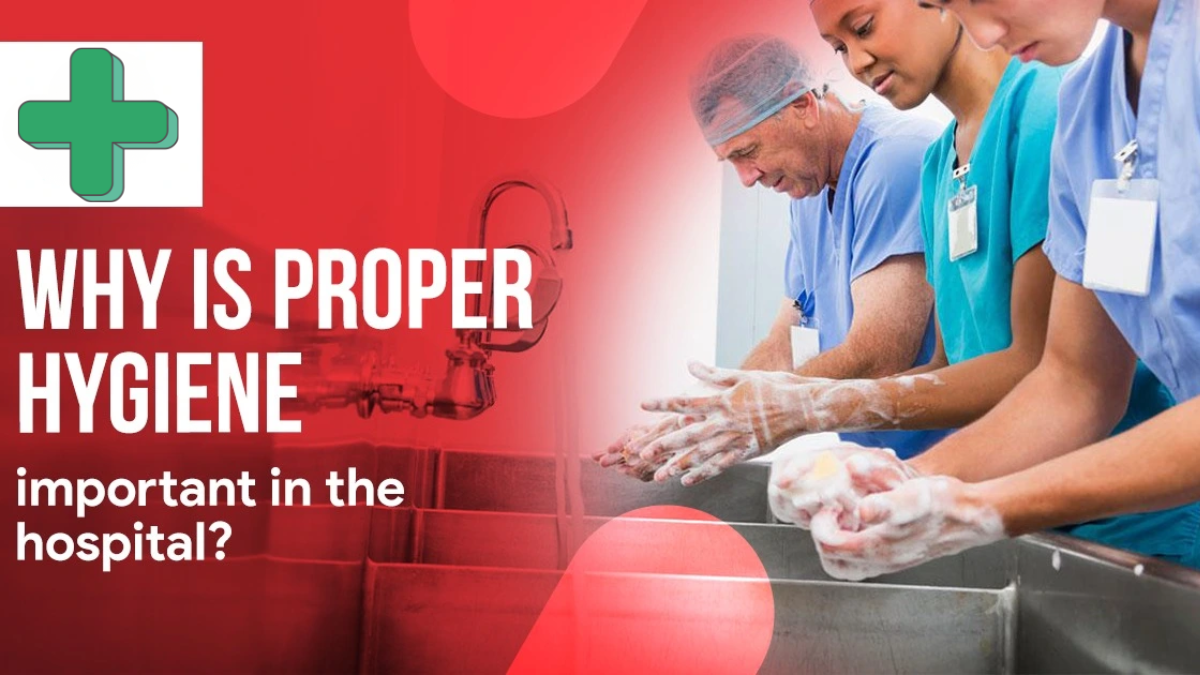Hospital hygiene is one of the most critical aspects of healthcare that affects patients, staff, and visitors. Proper hygiene practices in hospitals prevent the spread of infections, ensure patient safety, and maintain the overall health environment. Hospitals handle numerous patients daily, some with contagious diseases, making cleanliness and hygiene protocols essential.
Importance of Hospital Hygiene
- Preventing Hospital-Acquired Infections (HAIs):
Hospitals are hotspots for bacteria, viruses, and fungi. Good hygiene reduces HAIs like MRSA, pneumonia, or urinary tract infections. - Protecting Patients and Visitors:
Proper sanitation protects vulnerable patients and visitors from infections. - Ensuring Staff Safety:
Hospital staff face daily exposure to pathogens. Hygiene protocols, PPE, and proper sanitation keep them safe. - Maintaining Trust and Reputation:
Clean hospitals inspire confidence in patients and the community. - Regulatory Compliance:
Hospitals must comply with hygiene standards set by health authorities to avoid penalties and ensure accreditation.
Key Components of Hospital Hygiene
1. Hand Hygiene
- Regular handwashing with soap or using alcohol-based sanitizers.
- Mandatory for staff before and after patient interaction.
2. Surface Cleaning and Disinfection
- Daily cleaning of patient rooms, waiting areas, operating rooms, and bathrooms.
- Use of disinfectants to kill harmful microorganisms.
3. Sterilization of Equipment
- Surgical instruments, diagnostic tools, and reusable medical devices must be sterilized.
- Autoclaves, UV sterilization, and chemical disinfectants are commonly used.
4. Waste Management
- Proper disposal of medical and biological waste.
- Color-coded segregation for sharps, infectious waste, and general trash.
5. Air and Water Hygiene
- Proper ventilation to reduce airborne pathogens.
- Regular testing and treatment of water to prevent contamination.
6. Personal Protective Equipment (PPE)
- Gloves, masks, gowns, and face shields protect staff and patients.
7. Infection Monitoring and Audits
- Regular audits and surveillance to monitor hygiene compliance.
- Tracking infection rates and taking corrective actions.
Role of Hospital Staff in Maintaining Hygiene
- Doctors and Nurses: Follow hygiene protocols, educate patients, and ensure safe procedures.
- Housekeeping Staff: Clean and disinfect hospital areas regularly.
- Infection Control Officers: Develop hygiene policies, monitor compliance, and handle outbreaks.
- Administrators: Provide resources, training, and oversight for hygiene programs.
Benefits of Good Hospital Hygiene
- Reduces infection rates and complications.
- Enhances patient recovery and reduces hospital stay.
- Protects hospital staff from contagious diseases.
- Maintains a clean and welcoming environment for visitors.
- Reduces costs associated with hospital-acquired infections.
Challenges in Maintaining Hospital Hygiene
- High patient volume and constant foot traffic.
- Staff shortages impacting cleaning routines.
- Resistance to strict hygiene practices among some personnel.
- Managing infectious disease outbreaks effectively.
- Ensuring continuous training and adherence to hygiene protocols.
Future of Hospital Hygiene
- Automated Cleaning Systems: Robots for disinfection of floors and surfaces.
- AI Monitoring: Detects hygiene lapses and alerts staff in real-time.
- Advanced Disinfectants: Use of ozone, UV-C, and hydrogen peroxide for sterilization.
- Smart Waste Management: Digital tracking of hospital waste for proper disposal.
- Hygiene Education Programs: Continuous digital training for staff and awareness for patients.
FAQs on Hospital Hygiene
1. Why is hospital hygiene important?
It prevents infections, protects patients and staff, and ensures a safe healthcare environment.
2. Who is responsible for hospital hygiene?
Doctors, nurses, housekeeping staff, infection control officers, and administrators.
3. What are common hospital hygiene practices?
Hand hygiene, surface disinfection, equipment sterilization, proper waste management, and PPE usage.
4. How does hospital hygiene protect patients?
Reduces hospital-acquired infections, complications, and ensures faster recovery.
5. What equipment is used for sterilization?
Autoclaves, UV lamps, chemical disinfectants, and automated sterilization systems.
6. How is hospital waste managed safely?
Through color-coded segregation, proper disposal, and treatment of infectious waste.
7. What challenges do hospitals face in maintaining hygiene?
High patient volume, staff shortages, resistance to protocols, and outbreak management.
8. Can technology improve hospital hygiene?
Yes, through robots, AI monitoring, smart waste tracking, and advanced sterilization techniques.
9. How often should hospital surfaces be disinfected?
High-touch areas should be disinfected multiple times daily; patient rooms and operation theaters require strict routine cleaning.
10. What is the future of hospital hygiene?
Automation, AI-based monitoring, advanced disinfectants, smart waste systems, and continuous training.

